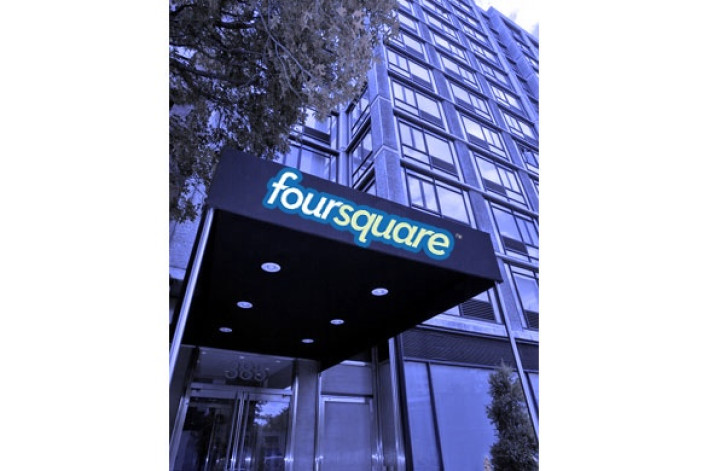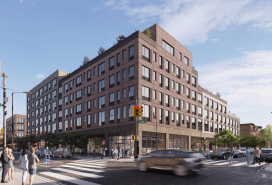Is it lame to be the Mayor of your apartment?

In the past year it has become second nature for many smartphone-wielding urban-dwellers to “check in” to bars, restaurants, concerts and other social venues on Foursquare, the addictive social networking app.
It’s part game (frequent users win badges and mayorships), part socializing tool (nearby friends know where to find you & vice versa), part branding (you choose where you want to be ‘seen’—eg The Shake Shack, perhaps, but not so much Appleby’s), and part tour guide (everytime a friend checks in somewhere, your universe of potential destinations expands).
But what about checking in to your apartment (or apartment building)? Is it cool--or is it Foursquare abuse?
The great debate
“Checking into home, at least for me, is crossing a line of usefulness and maybe the whole point of Foursquare,” says social media consultant and NYU whiz-kid-entrepreneur Natan Edelsburg.
“When I was traveling around Europe recently, I used Foursquare to find restaurants, bars and museums nearby," he says. "Often there was a ‘trending’ place just meters from me—that tells me it’s a popular place to go. But checking in at home just seems like you’re telling someone you’re home just to tell them.”
Digital media guru and PaidContent founder Rafat Ali (of recent Googling doorman fame) says checking into one's apartment is “the lamest thing I ever heard. It’s probably a much younger crowd that’s checking into their apartments on Foursquare—the first-time renters. Though I have heard people say, ‘Oh yeah, I’m the mayor of my girlfriend’s apartment.’”
But some NYC apartment dwellers see domestic check-ins a legitimate part of the game.
"I check in everywhere I go," says downtown condo resident and Internet startup executive Alan Medvin, who holds 17 badges on Foursquare.
"The social web is about sharing, openness, and the extension of our physical communities into the digital space," he says. "My home, friends homes, and other locations are as much a part of that as the the bars, restaurants, and stores I go to."
Clay Hebert, who runs Tribes Win, a social media and marketing consultancy, says only a few of his Foursquare friends tend to check in at home, and he doesn't personally.
“Privacy issues aside, unless they live in an apartment where people tend to meet up, I don't really care if someone's at home," he says. "The system is more about connecting and serendipity. People like to be Mayor, but if everyone on Foursquare made their apartment a venue, the system gets clogged and is less valuable for everyone."
Universally acceptable home check-ins
Checking into your home office is apparently more acceptable: Edelsburg plans to start checking into his StuyTown apartment under the name of his student-staffed social marketing, design and video consultancy “Natan.TV HQ."
"I find it more acceptable because it's more of a strategic 'career' check-in," he says. "Publicly showing you're at your office makes people aware you're conscious of Foursquare and it makes your office actually 'exist' in the social space. But I would only check in to my home office when I plan on working or having a meeting."
Absent a work-related twist, there’s only one scenario in which home check-in's make sense, says Hebert.
“Say you live near your friends and usually you’re working late, but you come home early and you want to let someone know you’re home and available to meet up,” he says. “You could check in on Fourquare and maybe push it out to your Twitter. Personally, I would just check Foursquare to see where my friends already are that night."
Even the Foursquare folks (who, it should be noted, stand to make more money from bars and restaurants than apartments) discourage checking in at home. They devote an entire page to it, part of which reads:
“Privacy issues aside, homes add a tremendous amount of clutter to Foursquare’s venue listings. If everyone adds their home to Foursquare, imagine how difficult it will be to find your favorite bar or restaurant, especially in densely populated urban areas."
Defensive Foursquare
In addition to ruining Foursquare for everyone or just boring your personal network, checking in at home may carry some other risks.
For instance, if your boss is on your network, you should avoid checking in at 4 in the afternoon when you’re supposed to be on a sales call, advise those with experience in these matters.
Also, checking in at 4 a.m. means something very different to a current or former romantic partner than checking in at 10:30 p.m.
As far as security concerns, most Foursquare-at-home fans we spoke to said they weren’t worried about being burgled. For one thing, rather than list their apartment numbers, they put down the building or invented a handle for their apartment like Haus de Ralph.
Moreover, you're more likely to be targeted by someone in your network who knows when you’re not home—checking into Sheep’s Meadow for a long lazy afternoon—than when you are.
Making a mockery of yourself may be the biggest risk.
"I have a friend who always checks into his apartment early in the afternoons despite his high-powered hedge fund job," says Medvin. "I make it a point to always give him a hard time about being overpaid for the amount of hours that he works."
Related posts:
F'd! UES co-op kills sale after reading kid's Facebook page
UWS co-op owner Tweets to resolve Big Box standoff over stove



























